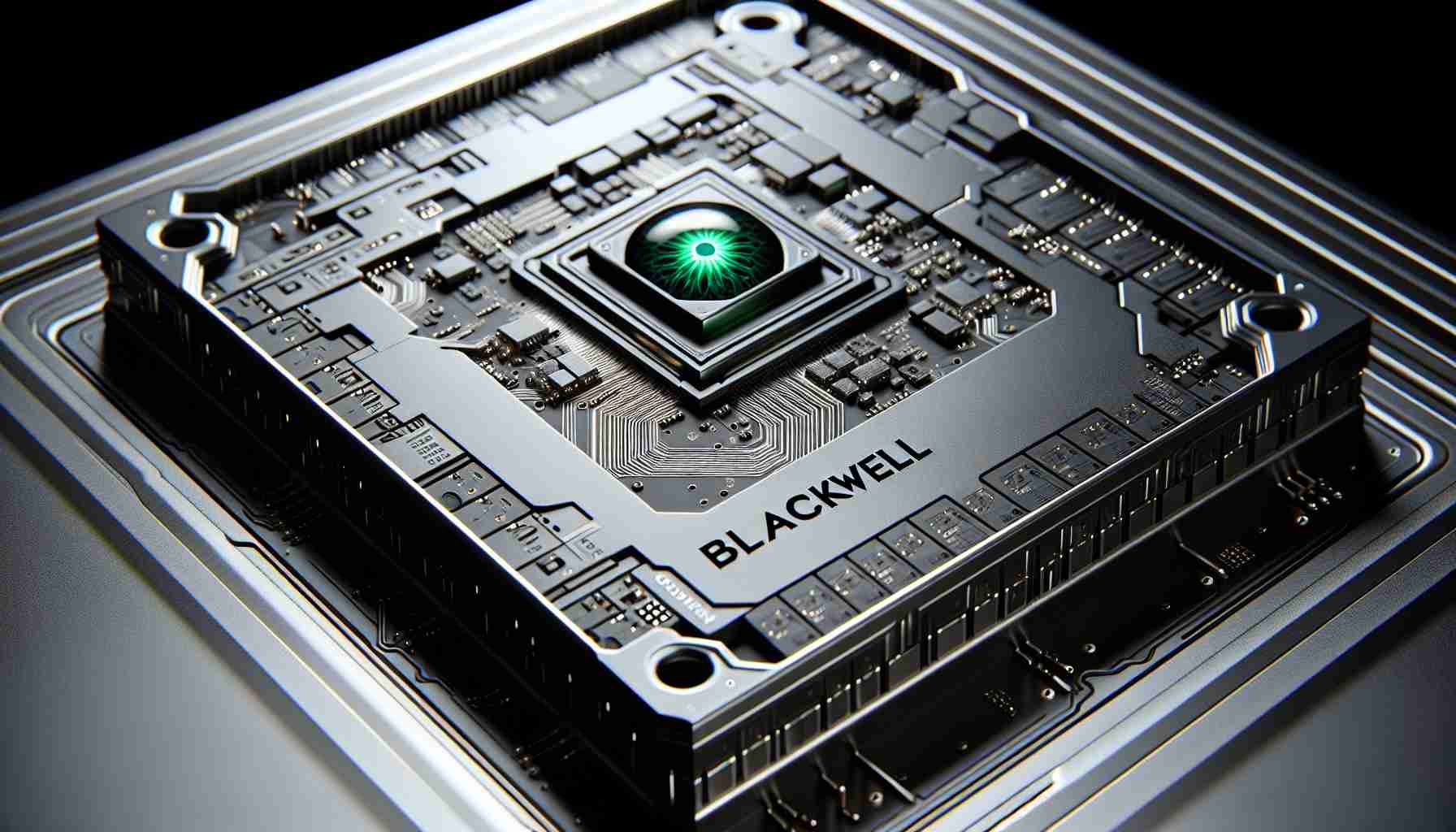Nvidia has made a groundbreaking announcement in the world of artificial intelligence with the introduction of its latest chip, Blackwell. This new chip is set to revolutionize the industry and solidify Nvidia’s position as a dominant player. With 208 billion transistors, Blackwell is expected to be four times faster than its predecessor, the Hopper chip, in training large language models for AI technology. It is also seven times faster when it comes to running these models, a process known as inference.
Nvidia’s CEO, Jensen Huang, who is often referred to as the “godfather of AI”, presented Blackwell during Nvidia’s annual developer conference to an audience of nearly 20,000 people. Huang highlighted the immense growth in computing power that Nvidia has achieved in recent years, exceeding even the famous Moore’s Law. In just eight years, Nvidia has increased the power of artificial intelligence by 1000 times, which is an astonishing achievement.
The significance of Blackwell goes beyond just its impressive performance. Huang believes that traditional computing has reached its limits, and AI-fueled accelerated computing is the way forward. This shift opens up a whole new world of possibilities, where AI can understand the context of user searches and generate appropriate responses, saving time, energy, and network bandwidth. It is this generative AI that Huang calls the future, marking a fundamental shift in the way we compute.
In addition to accelerated computing, Huang also highlighted the growth areas of digital twins and advanced robotics. Digital twins involve using AI to create online representations of real-world situations, enabling businesses to model, test, and train in a virtual environment before making real-world changes. Advanced robotics, empowered by AI computing power, are rapidly advancing and will play a crucial role in the future.
Nvidia’s announcement has already caused ripples in the tech sector, with companies like Dell experiencing an after-hours surge in stock prices. However, it remains to be seen how much of the AI market Nvidia can capture, considering the exuberance already built into its share price.
This development also has implications for the Australian stock market. Analysts predict increased demand for data center operators such as NextDC, Macquarie Technology, Goodman Group, and AirTrunk. Additionally, Megaport, a company that facilitates the movement of AI data between data centers and companies, is expected to benefit from this AI boom.
While there are many positive implications of this AI revolution, the survey conducted by RMIT and Deloitte raises concerns about its impact on workers. According to the survey, 47% of employees have never used generative AI, highlighting the potential challenges faced by workers in adapting to this rapidly evolving technology.
As Nvidia leads the charge in the AI industry, other players will undoubtedly scramble to catch up. Collaborations between tech giants like Apple and Google are already underway as they strive to keep up with leaders in the field. The future of AI is here, and it promises to transform the way we work and live.
Nvidia’s Blackwell chip is set to revolutionize the artificial intelligence industry and solidify Nvidia’s dominance in the market. With 208 billion transistors, Blackwell is expected to be four times faster than its predecessor in training large language models for AI technology, as well as seven times faster in running these models.
Nvidia’s CEO, Jensen Huang, presented Blackwell at Nvidia’s annual developer conference, highlighting the immense growth in computing power that Nvidia has achieved. In just eight years, Nvidia has increased the power of artificial intelligence by 1000 times, exceeding even Moore’s Law.
The significance of Blackwell goes beyond its performance. Huang believes that traditional computing has reached its limits and that AI-fueled accelerated computing is the way forward. This shift opens up possibilities for generative AI, where AI can understand the context of user searches and generate appropriate responses, saving time, energy, and network bandwidth.
Huang also highlighted the growth areas of digital twins and advanced robotics. Digital twins use AI to create online representations of real-world situations, enabling businesses to model, test, and train in a virtual environment. Advanced robotics, empowered by AI computing power, are rapidly advancing and will play a crucial role in the future.
Nvidia’s announcement has already caused ripples in the tech sector, with companies like Dell experiencing an after-hours surge in stock prices. However, it remains to be seen how much of the AI market Nvidia can capture, considering the exuberance already built into its share price.
This development also has implications for the Australian stock market, with analysts predicting increased demand for data center operators such as NextDC, Macquarie Technology, Goodman Group, and AirTrunk. Megaport, a company that facilitates the movement of AI data between data centers and companies, is also expected to benefit from this AI boom.
While the AI revolution brings many positive implications, a survey conducted by RMIT and Deloitte raises concerns about its impact on workers. According to the survey, 47% of employees have never used generative AI, highlighting the potential challenges faced by workers in adapting to this rapidly evolving technology.
As Nvidia leads the charge in the AI industry, other players will undoubtedly scramble to catch up. Collaborations between tech giants like Apple and Google are already underway as they strive to keep up with leaders in the field. The future of AI is here, promising to transform the way we work and live.
For more information about Nvidia and its AI developments, visit their official website here.
References:
– Dell stock surge after Nvidia’s Blackwell chip announcement: link.
– Australian data center operators expected to benefit from AI boom: link, link, link, link.
– Megaport facilitates AI data movement between data centers and companies: link.
– RMIT and Deloitte survey on the impact of generative AI on workers: link, link.
– Collaborations between tech giants Apple and Google in response to Nvidia’s developments: link, link.

